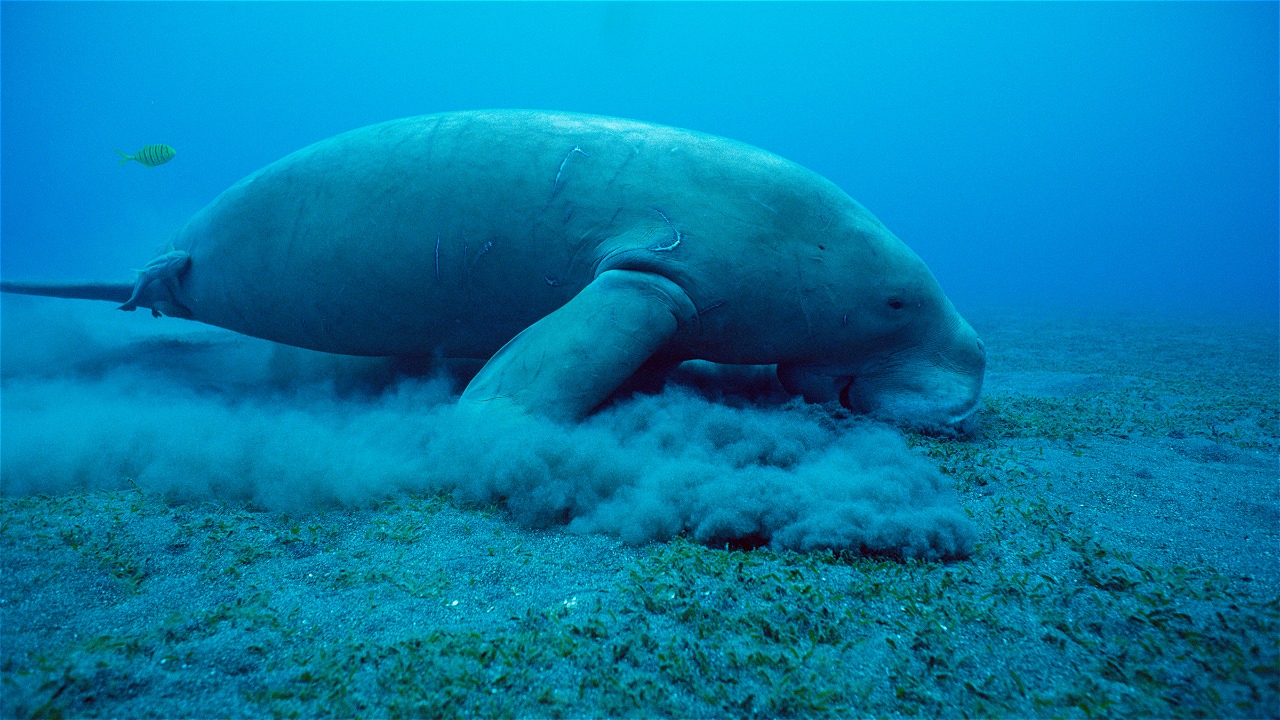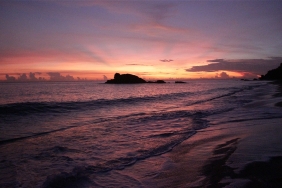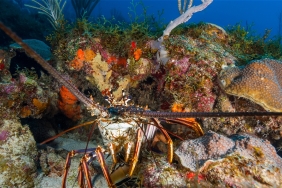CONSERVATION DISCUSSION: "WHAT'S WRONG WITH THE DUGONG?"
By: Sani Firmansyah (Supporter Center WWF-Indonesia)
Many people think dugongs are fish. In fact, dugongs are one of 35 species of marine mammals in Indonesia. Dugongs are also commonly called dugongs. The word "dugong" comes from the Tagalog language which means "lady of the sea". Dugongs are herbivores whose main food is seagrass. It is closely related genetically to the elephant. Dugongs can be found in shallow waters around the Indian and Pacific Oceans.
In Indonesia, the dugong is distributed in almost all coastal areas in Indonesia, mainly in seagrass areas that serve as its feeding ground (feeding ground). They are most likely to be found in the waters of Bintan, Bali, Central Kalimantan, South Kalimantan, East Nusa Tenggara (NTT), Central Sulawesi, North Sulawesi, Maluku, and Cenderawasih Bay in Papua. Until now, the status of the dugong population in Indonesia is not known with certainty due to the lack of population surveys that have been carried out and the vast waters in Indonesia. Due to the limited information, the implementation of dugong conservation efforts in several regions in Indonesia has become more difficult.
Some explanations about the dugong were delivered by Sheyka N. Fadela, Marine Species Program WWF-Indonesia in the Dugong Conservation Discussion held last Saturday (30/09) at the Jakarta Creative Hub, Jakarta.
"Internationally, the only sea-dwelling mammal of the order Sirenia is categorized as 'vulnerable to extinction' (Vulnerable) by The International Union for Conservation of the Nature (IUCN) due to the dugong's slow reproductive cycle and the threat of poaching in several countries around the world. Trade in dugong body parts is also prohibited as the animal is included in Appendix I of the Convention on International Trade in Endangered Species of Wild Fauna and Flora (CITES). Through Government Regulation No. 7 of 1999 and Law No. 5 of 1990, the dugong is explicitly protected. Even so, the dugong population is still categorized as threatened, due to the decrease in seagrass area (dugong habitat-Red), "explained Sheyka.
In the discussion attended by 60 participants, most of whom were students, Sheyka also explained about the various threats to dugongs. "Dugong threats are classified into two things. Internal threats such as natural predators and dugong disease. Then external threats where dugongs are most often found dead as bycatch (bycatch). This is thought to be because dugongs forage in coastal waters that are also areas where fishermen are active," Sheyka explained.
The enthusiasm of the participants in the discussion about dugong was very high. Various questions were asked. One of them was by Yudho, a student of Bogor Agricultural University. "What is done by WWF-Indonesia to maintain the existence of this dugong?" he asked.
"Since 2016, WWF-Indonesia together with the Directorate of Biodiversity and Marine Conservation, Ministry of Maritime Affairs and Fisheries of the Republic of Indonesia, the Oceanographic Research Center of the Indonesian Institute of Sciences, and the Faculty of Fisheries and Marine Science of Bogor Agricultural University have been trying to maintain the existence of these charismatic creatures through the Dugong and Seagrass Conservation Program in Indonesia (Dugong and Seagrass Conservation Project or DSCP Indonesia). DSCP Indonesia was initiated to collect data and information on dugongs and seagrasses and encourage empowered community management through incentive schemes and the introduction of sustainable fisheries practices, advocate dugong and seagrass conservation efforts in national and regional policies and planning and increase public knowledge and awareness related to dugongs and seagrasses," Sheyka explained.
At the end of the discussion, Sheyka explained the importance of maintaining the balance of ecosystems in the sea. "The presence of dugong and seagrass can maintain the balance of the ecosystem in the sea. If seagrasses exist, dugongs are healthy, fish are healthy, and humans are maintained because they can fulfill their needs by consuming marine fish," concluded Sheyka.





